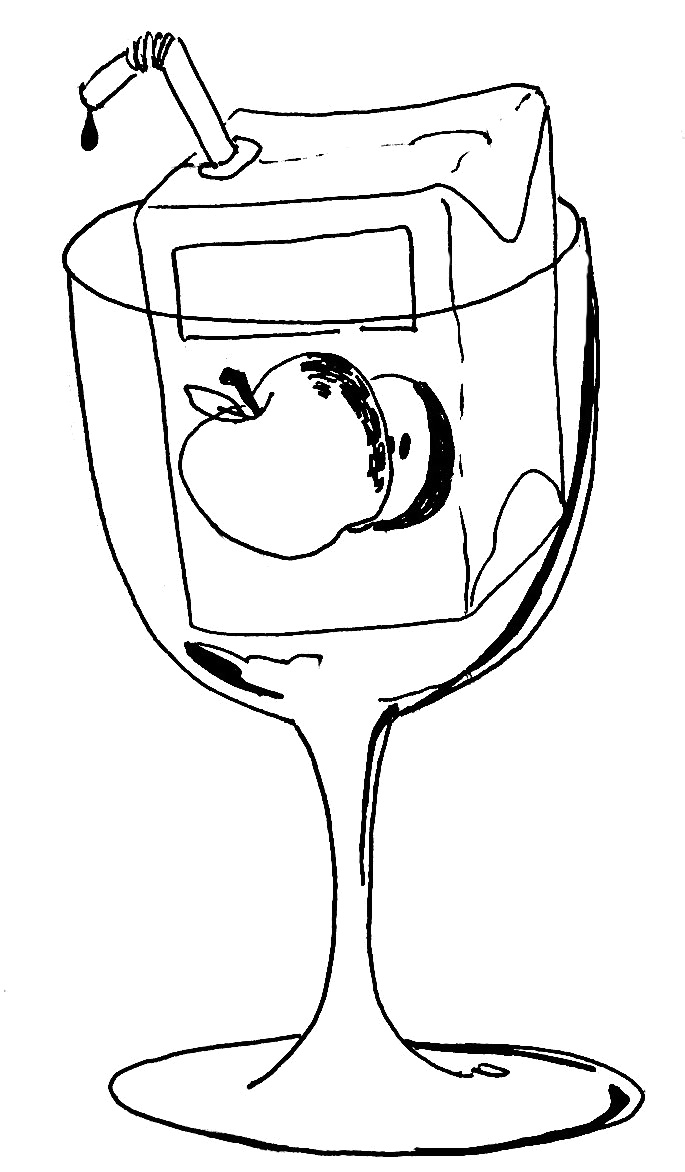
The struggle to open the champagne bottle ends with an understated popping noise, like that of an undercooked popcorn kernel. Someone in the crowd proposes a toast. The tower of champagne flutes crowd surfs until each person has one to call their own. We raise our glasses and toast, but there’s no sporadic clinking. The champagne flutes are plastic. Mine is filled with sparkling apple cider.
While I can’t vouch for the liquid content of the rest of the plastic flutes, what I can vouch for is the inclusivity of that night, which happened to be my initiation into one of Yale’s many clubs. As someone who doesn’t drink alcohol for both religious and personal reasons, I didn’t expect to feel included. From my tryout, where I was asked whether I was comfortable around alcohol, to the initiation itself, where half of the drink menu consisted of non-alcoholic concoctions, I was delighted to find that there was a space carved out for me.
I’ve since discovered that this inclusiveness for those who don’t drink alcohol (whether it’s for personal, religious or moral reasons) doesn’t last longer than a couple of weeks. It’s an interesting phenomenon, considering some would argue that Yale’s culture is built on a foundation of inclusivity. However, we as Yale students drop the ball when it comes to alcohol. At first, I discounted my qualms on the subject. After all, college campuses and alcohol go cup in hand, right? A lifetime of movies about wild college parties had conditioned me into believing that I was one of the few. Since then, however, I have held conversations with students who, like me, struggle with reconciling the fact that they don’t drink with a desire to partake in Yale’s social scene. These people are anything but few and far between.
It’s important to take a moment and explain that Yale already does a phenomenal job in crafting a community that thrives, even without alcohol. But at the end of the day, literally, Yale is just another college campus, brimming with college students. This also isn’t meant to be any sort of judgment on those who decide to drink or a suggestion that parties should go without alcohol; I may not drink, but I’m not crazy. This is merely a call for inclusivity for those who decide not to drink, but who still want to fully immerse themselves in the campus social life as well as our fleeting college experience.
About a month ago, one of my friends went on an overnight retreat with a club on campus. What she expected was team bonding. What she received was a couple of couches, a table or two and the contents of a small liquor cabinet. I’ve found myself in similar situations — where there are groups on this campus that I want to grow closer to in an organic setting that only a party can offer. Most of the time, however, the only activity at these parties is drinking alcohol from its various containers — a Red Solo Cup, shot glass or a plastic champagne flute. Thirty minutes in, my only options become awkwardly cradling my water bottle or attempting to hold a conversation with a drunken classmate. And trust me, that conversation usually doesn’t go very far.
It’s easy to forget that there are college students who don’t engage in the culture of alcohol. However, it’s even easier to forget that these people are your friends, teammates and classmates — all of whom share the same desire as you to socialize at parties and get to know people outside of Yale’s classroom walls. Advertising that you’ll have non-alcoholic drinks, having other activities at parties and being aware of the people in your life who choose not to drink are simple steps that broaden the reach of Yale’s social scene.
So how do we, as students, move towards inclusivity? It’s simple: It starts with writing “non-alcoholic drinks will be served,” right below the token “you must be 21 and older to drink in the State of Connecticut.” It starts with adding a movie night alongside that week’s mixer. It starts with a plastic champagne flute filled with sparkling apple cider.
Katherine Hu is a first year in Ezra Stiles College. Contact her at katherine.hu@yale.edu .







